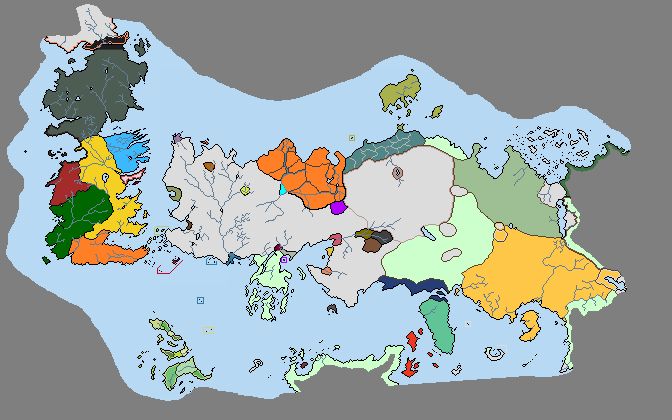You are using an out of date browser. It may not display this or other websites correctly.
You should upgrade or use an alternative browser.
You should upgrade or use an alternative browser.
The End and The Beginning-An ASOIAF Nation Game-IC
- Thread starter Ceslas
- Start date
- IC Fantasy
- Location
- The Final Frontier
They found the sign at dawn.
Riders, the scouts of the great Khalasar, had been scouting the edges of the hordes' advances, watching and waiting for rival Khals, for caravans from the Ghiscari or from the Free Cities, or even from further east or west. Everyone had heard the explosions, had seen the enormous plumes of smoke and fire, streaming from far off Valyria.
Some, the older men and women, the foolish and the superstitious of the Khalasar, had said that such a sign was symbol that the Great Stallion was manifest, that it had trode across the surface of Valyria as a precursor towards the destruction of all those who slept in the great cities, that it was the precursor for the entire world becoming servants of the one mighty Khalasar, that this was the day of the Dothraki! . . . but the wiser, the smarter, knew that there were few good signs, in this world, and that this was unlikely to be one.
One of the slaves, a man from Yi Ti, who said that he was sure that these were merely volcanos, and that the Valyrians would be sure to have it under control any day, any moment now.
Some even believed him, for that matter.
But then the riders found it. Found . . . her.
There was a dragon, an adult one, which would be able to snap up and devour a full-grown horse – and it's rider, for that matter – in a single great bite. It was a dark green, the color of a forest, the type of color one would never see on the Great Grass Sea, with eyes like deep sapphires, and claws like immense swords. With every breath, a burst of fire, small and rapid, darted out. On any other day, any other situation, it would have been a gloriously magnificent sight.
But this was not that day.
The dragon was burned, scarred, its wings pockmarked with burns and immense, gaping holes. Its ribs were smashed in, and one eye glassy, and blinded, the other simply gone. It's every breath was labored and slow, a struggle to be completed. It had a rider, too, a young woman, her skin nearly as pale as her hair. She, too would have been lovely, if not for the burns that covered her face and, stretched down her body, as well.
The scouts had sent word back to the Khalasar, and from the Khalasar had come the Khal and his bloodriders. Khal Mengo was a large man, even for the Dothraki. His braid tinkled with bells, the long curved arakh of the Dothraki hung at his side, and scar tissue criss-crossed his chest. His bloodriders chatted, gayly and happily, but the Khal himself rode in silence, till he arrived. He swung off his horse, and stalked forwards, cutting off the words of his scouts before they even began. At a distance, he surveyed the dying dragon, then uttered a single command to his men.
"Kherikhat."
Skin it.
He crouched, grasping the face of the burned, dying rider, and in poor, thickly accented Valyrian, asked a single question.
"What happened to the dragonlords?"
The woman – girl, really – could barely speak, as burned as she was.
"We . . . we died. We all died."
A grin broke across Khal Mengo's face.
"Good."
Riders, the scouts of the great Khalasar, had been scouting the edges of the hordes' advances, watching and waiting for rival Khals, for caravans from the Ghiscari or from the Free Cities, or even from further east or west. Everyone had heard the explosions, had seen the enormous plumes of smoke and fire, streaming from far off Valyria.
Some, the older men and women, the foolish and the superstitious of the Khalasar, had said that such a sign was symbol that the Great Stallion was manifest, that it had trode across the surface of Valyria as a precursor towards the destruction of all those who slept in the great cities, that it was the precursor for the entire world becoming servants of the one mighty Khalasar, that this was the day of the Dothraki! . . . but the wiser, the smarter, knew that there were few good signs, in this world, and that this was unlikely to be one.
One of the slaves, a man from Yi Ti, who said that he was sure that these were merely volcanos, and that the Valyrians would be sure to have it under control any day, any moment now.
Some even believed him, for that matter.
But then the riders found it. Found . . . her.
There was a dragon, an adult one, which would be able to snap up and devour a full-grown horse – and it's rider, for that matter – in a single great bite. It was a dark green, the color of a forest, the type of color one would never see on the Great Grass Sea, with eyes like deep sapphires, and claws like immense swords. With every breath, a burst of fire, small and rapid, darted out. On any other day, any other situation, it would have been a gloriously magnificent sight.
But this was not that day.
The dragon was burned, scarred, its wings pockmarked with burns and immense, gaping holes. Its ribs were smashed in, and one eye glassy, and blinded, the other simply gone. It's every breath was labored and slow, a struggle to be completed. It had a rider, too, a young woman, her skin nearly as pale as her hair. She, too would have been lovely, if not for the burns that covered her face and, stretched down her body, as well.
The scouts had sent word back to the Khalasar, and from the Khalasar had come the Khal and his bloodriders. Khal Mengo was a large man, even for the Dothraki. His braid tinkled with bells, the long curved arakh of the Dothraki hung at his side, and scar tissue criss-crossed his chest. His bloodriders chatted, gayly and happily, but the Khal himself rode in silence, till he arrived. He swung off his horse, and stalked forwards, cutting off the words of his scouts before they even began. At a distance, he surveyed the dying dragon, then uttered a single command to his men.
"Kherikhat."
Skin it.
He crouched, grasping the face of the burned, dying rider, and in poor, thickly accented Valyrian, asked a single question.
"What happened to the dragonlords?"
The woman – girl, really – could barely speak, as burned as she was.
"We . . . we died. We all died."
A grin broke across Khal Mengo's face.
"Good."
- Location
- United States
Meereen-0 AD
Current Ruler: Council of Masters
Type of Government: Great Masters Council
Capital: Meereen
Religion: Gods of Ghis
Major Actions: @Ceslas
-Expansion: The world is ripe for the picking and we are going to take it. We are going to spread ourselves and bring more into the fold. Rejoice with the people beyond our walls that Valyria has fallen and the might of Meereen is here to protect them and honor them.
-Military Expansion: Our forces are limited but with our growing population we will be able to grow our army for defense and for offense against our enemies and to gain new slaves. We will train slave soldiers and free men alike but in different groups. The navy will also be crucial in this expansion to create the finest fleet the bay has ever seen. If we are to create vast fleets for raiding for slaves and protecting our traders then this is crucial.
-The Great Roads: In the wake of our expansion beyond and the formation of the Ghiscari league we must forge great roads to link the parts of our own empire as well as within the league.
Internal Events:
-The fall of Valyria has presented the Great Masters the opportunity of a generation. To wield power only felt ages ago. Slaver's Bay is their's for the taking. The city prepares for expansion
Military
-9,000 Infantry
-3,000 cavalry
Alliances, Agreements, Pacts, and Trade:
Ghiscari League
Diplomacy:
Current Ruler: Council of Masters
Type of Government: Great Masters Council
Capital: Meereen
Religion: Gods of Ghis
Major Actions: @Ceslas
-Expansion: The world is ripe for the picking and we are going to take it. We are going to spread ourselves and bring more into the fold. Rejoice with the people beyond our walls that Valyria has fallen and the might of Meereen is here to protect them and honor them.
-Military Expansion: Our forces are limited but with our growing population we will be able to grow our army for defense and for offense against our enemies and to gain new slaves. We will train slave soldiers and free men alike but in different groups. The navy will also be crucial in this expansion to create the finest fleet the bay has ever seen. If we are to create vast fleets for raiding for slaves and protecting our traders then this is crucial.
-The Great Roads: In the wake of our expansion beyond and the formation of the Ghiscari league we must forge great roads to link the parts of our own empire as well as within the league.
Internal Events:
-The fall of Valyria has presented the Great Masters the opportunity of a generation. To wield power only felt ages ago. Slaver's Bay is their's for the taking. The city prepares for expansion
Military
-9,000 Infantry
-3,000 cavalry
Alliances, Agreements, Pacts, and Trade:
Ghiscari League
Diplomacy:
Last edited:
- Location
- A Better Future

Myr
The Lord of Light Triumphant
Before long, the temple's soldiers had assumed control over the towers and the walls, and the temple's priests were meeting in the former governor's palace — as such, when the Temple State was proclaimed, it didn't come as a surprise to the citizens, for the presence of red-robed priests had become ubiquitous across town. During its first months of power, the Temple State found itself having to deal with the issue of slaves, for according to the teachings, R'hllor is the only master of men and women. While the selling and purchasing of slaves would be disallowed, and all men and woman would be born as citizens, existing slaves would not be free; the state would instead purchase all slaves which their owners were willing to sell at triple the usual price. The slaves which the state acquired in this manner would be freed, and would be inducted into a life of servitude towards the Lord of Light.
The Temple State also found itself having to look outward. While soldiers were deployed to bring smaller settlements to the fold, there was the issue of the other great colonies of the Freehold...
Last edited:
ByzantineCaesar
Tribune of the Plebs
- Location
- São Paulo, SP, Brazil
HOUSE STARK
OF WINTERFELL

Name: House Stark of WinterfellOF WINTERFELL

Realm: The North
Head of House: Jorah Stark
Heir: Jon Stark
Words: Winter is Coming
Religion: The Old Gods of the Forest
Ancestral blade: Ice, a newly acquired Valyrian steel greatsword
Seat: Winterfell
Other holdings: Moat Cailin
Cadet branches: House Karstark of Karhold
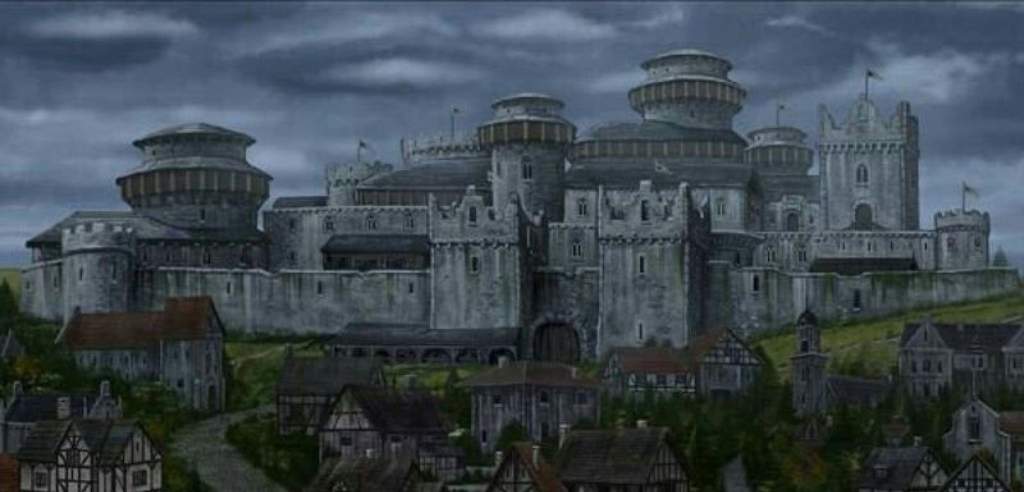
- The King's wife, ARRANA UMBER (a. 30), a wild beauty from the Last Hearth, now Queen in the North wearing a crown of bronze and blue winter roses. A daughter of Lord Torghen Umber and his Karstark wife, Queen Arrana binds the might of the Last Hearth and Karhold to Winterfell. A hard, though fair, woman, Arrana is faithful to her husband and speaks with his voice in all matters. The King and Queen have had four children so far:
- JON STARK (a. 10), the Prince of Winterfell, heir to House Stark and the North,
- TORRHEN STARK (a. 8), the spare, a ward of Lord Dustin at Barrowton,
- SANSA STARK (a. 7), a sweet girl at Winterfell,
- JONOS STARK (a. 3), the babe,
- The King's younger brother, ARTHOR STARK (a. 29), his friend and close adviser, long-faced, brown-haired and grey-eyed, with the grim humor of the Starks and a passionate hate for his late father. Prince Arthor is lord of a holdfast next to Winterfell, but spends his time at court by the side of his brother, now that Brandon the Bad is dead. He is married to Alys Hornwood, with whom he has three children:
- SARRA STARK (a. 11), the winter maid, rumored to be Brandon the Bad's child from his First Night rape of Lady Alys,
- ARTOS STARK (a. 10), a steadfast companion of Prince Jon,
- AREGELLE STARK (a. 5), a young girl,
- The King's younger brother, RODRIK STARK (a. 24), a black brother at the Wall, banished to the Night's Watch after a disagreement with his late father. Bound to service for life, Rodrik is now First Ranger at the Nightfort. He was married to Alysane Glover, with whom he had one daughter, Alarra Stark (a. 4)
- The King's youngest brother, EDRIC "NED" STARK (a. 20), wild, wolf-blooded and discontent at Winterfell, always under the shadow of his older brothers. As fierce with a blade as he is half a horse, the Century of Blood calls for the wild wolf of Winterfell like few others,
- The King's sisters, the twins BRANDA and BERENA (a. 16), the winter maids of Winterfell
---

King Jorah Stark
(minus the wolf)
---

King Jorah Stark
(minus the wolf)
---
- Brandon the Bad had numerous bastard sons and daughters, half-siblings to King Jorah and the trueborn wolves of Winterfell, from his practice of taking his right of the First Night. Half of the peasants around Winterfell is said to be descended from him, though only the acknowledged bastards matter. Northern houses also competed for royal favor by presenting mistresses to King Brandon, though he had them sent away every time they got with child and never recognized children from his so-called "state" affairs.
- RODWELL SNOW (a. 24), the Bastard of Winterfell, sired on Lady Cassella Cassel at her wedding to Elric Poole, a rival of Rodrik Stark and the reason he was sent to the Wall
- LYARRA SNOW (a. 23), the Bastard of Bear Island, sired on Lady Jeyne Forrester at her marriage to a younger son of Lord Cerwyn, fostered away with the Mormonts,
- ARSA SNOW (a. 20), the Bastard of the Dreadfort, sired on Lady Arya Flint at her wedding to a younger son of Lord Bolton,
- DONNEL SNOW (a. 18), the Bastard of Barrowton, sired on Lady Betha Ryswell at her wedding to Lord Stout,
- RICKON SNOW (a. 17), the Bastard in the Mountains, sired on Barra Burley,
- BRANDON SNOW (a. 15), the Bastard of Widow's Watch, sired on Lady Lysara Locke at her wedding to Lord Flint's heir,

Sons of the Harpy

With the Valyrians driven out of Slaver's Bay the Ghiscari find themselves free to rebuild their civilization but after centuries of foreign rule very little remains of their past. They remember tales of the Lockstep Legions, the late city of Ghis and the Harpy and her Green Graces but the details have been distorted in numerous retellings and few Ghiscari writings survive from this with even fewer able to read them and none able to speak the language of their forefathers. In such a time many choices will have to be made to decide what sort of civilization will rise form the ashes of the Freehold and conflict over differing interpretations is all but inevitable...
@KnightofTempest @EmperorCasey
House Arryn - 1 AD


King Egbert Arryn
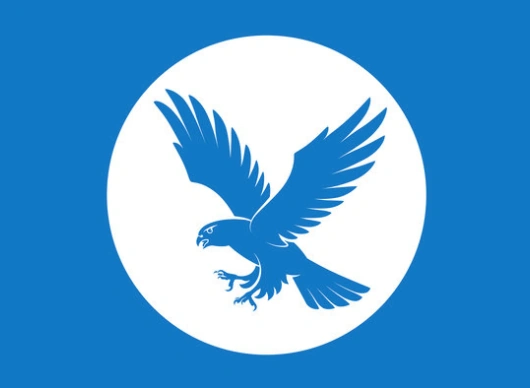
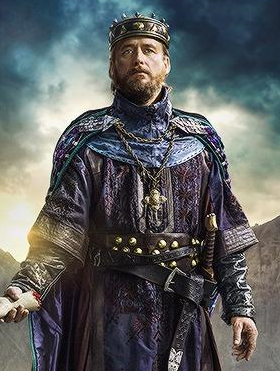
King Egbert Arryn
Current Ruler: Egbert Arryn
Expected Heir: Osric Arryn
Type of Government: Feudal Monarchy
Capital: The Eyrie
Religion: Faith of the Seven
House Words: As High as Honor
Family Tree:
King Egbert Arryn (a. 46), married to Queen Jeyne Arryn, nee Royce (a. 43)
- His Son, Prince Osric Arryn (a. 24), married to Lady Maris Arryn, nee Corbray (a. 21)
- His Son, Prince Griffith Arryn (a. 22)
- His Daughter, Princess Amanda Arryn (a. 18)
- His Son, Prince Symond Arryn (a. 13)
- His Daughter, Princess Janyce (a. 11)
His Brother, Prince Elbert Arryn (a. 40), married to Lady Rowena Arryn, nee Grafton (a. 38)
- His Son, Ser Jasper Arryn (a. 19)
- His Daughter, Lady Ysilla Arryn (a. 17)
His Sister, Princess Alyssa Redfort, nee Arryn (a. 37), married to Lord Benedict Redfort.
- Has issue.
Expected Heir: Osric Arryn
Type of Government: Feudal Monarchy
Capital: The Eyrie
Religion: Faith of the Seven
House Words: As High as Honor
Family Tree:
King Egbert Arryn (a. 46), married to Queen Jeyne Arryn, nee Royce (a. 43)
- His Son, Prince Osric Arryn (a. 24), married to Lady Maris Arryn, nee Corbray (a. 21)
- His Son, Prince Griffith Arryn (a. 22)
- His Daughter, Princess Amanda Arryn (a. 18)
- His Son, Prince Symond Arryn (a. 13)
- His Daughter, Princess Janyce (a. 11)
His Brother, Prince Elbert Arryn (a. 40), married to Lady Rowena Arryn, nee Grafton (a. 38)
- His Son, Ser Jasper Arryn (a. 19)
- His Daughter, Lady Ysilla Arryn (a. 17)
His Sister, Princess Alyssa Redfort, nee Arryn (a. 37), married to Lord Benedict Redfort.
- Has issue.
ByzantineCaesar
Tribune of the Plebs
- Location
- São Paulo, SP, Brazil
To All Northern Lords
From King Jorah Stark
I summon you to feast at Winterfell to renew your oaths and faith in House Stark and to present your grievances and petitions before the King of Winter. King Brandon is dead, Doom has befallen Valyria and winter is not yet here. The time is right for us to shape the new world.
From King Jorah Stark
I summon you to feast at Winterfell to renew your oaths and faith in House Stark and to present your grievances and petitions before the King of Winter. King Brandon is dead, Doom has befallen Valyria and winter is not yet here. The time is right for us to shape the new world.
- Location
- United States
From: Meereen
To: Astapor @Ceslas
Secret
Greetings brothers. The Valyrian slavers have fallen and we, the righteous have arisen again. This is a time of survival and only the strong can prevail. We propose an alliance between our states. We have our sights set on the state of Yunkai. In return for your assistance or nonaction we leave the areas to your south as you sole sphere of influence and an alliance of marriage and trade. We can dominate this new world, now that Valyria is a smoking ruin the doors of possibility are open.
To: Astapor @Ceslas
Secret
Greetings brothers. The Valyrian slavers have fallen and we, the righteous have arisen again. This is a time of survival and only the strong can prevail. We propose an alliance between our states. We have our sights set on the state of Yunkai. In return for your assistance or nonaction we leave the areas to your south as you sole sphere of influence and an alliance of marriage and trade. We can dominate this new world, now that Valyria is a smoking ruin the doors of possibility are open.
ChaosTheVoid
Beyond the Outer Gates
Tolos-0 AD
Current Ruler: Archon Rhaenor Arthaerys
Type of Government: Feudal Government
Capital: Tolos
Religion: Gods of Valyria
Internal Events:
- Valyria's fall has sent the colonies into disarray, for they were never meant to govern themselves. Chaos and confusion was followed by bloodshed.
- Tolos has a new ruler emerging from the power struggle that ensued for control of the city and its territory. A distant relation to one of the forty families, he has managed to win the support of the military and the people.
- Rhaenor Arthaerys is a man with ambition. He believes that the current resurgent Ghiscari will prove a threat and that the surviving colonies of Valyria need to be united into a single Northern Valyrian state to face the trials ahead.
Military
6,000 Foot
30 Ships
Current Ruler: Archon Rhaenor Arthaerys
Type of Government: Feudal Government
Capital: Tolos
Religion: Gods of Valyria
Internal Events:
- Valyria's fall has sent the colonies into disarray, for they were never meant to govern themselves. Chaos and confusion was followed by bloodshed.
- Tolos has a new ruler emerging from the power struggle that ensued for control of the city and its territory. A distant relation to one of the forty families, he has managed to win the support of the military and the people.
- Rhaenor Arthaerys is a man with ambition. He believes that the current resurgent Ghiscari will prove a threat and that the surviving colonies of Valyria need to be united into a single Northern Valyrian state to face the trials ahead.
Military
6,000 Foot
30 Ships
We think you took too much from the slavers. Besides, what's to stop you from conquering us after you finish with Yunkai? We will oppose you.From: Meereen
To: Astapor @Ceslas
Secret
Greetings brothers. The Valyrian slavers have fallen and we, the righteous have arisen again. This is a time of survival and only the strong can prevail. We propose an alliance between our states. We have our sights set on the state of Yunkai. In return for your assistance or nonaction we leave the areas to your south as you sole sphere of influence and an alliance of marriage and trade. We can dominate this new world, now that Valyria is a smoking ruin the doors of possibility are open.
- Location
- United States
We think you took too much from the slavers. Besides, what's to stop you from conquering us after you finish with Yunkai? We will oppose you.
If we were intent on conquering you we would not be approaching you now. A master intent on making a slave does not pretend to be generous before tricking them. A master does not engage in such deceit. The world is new and changing but we are not your enemy. We offer such courteous offers but you assume us to be nothing more than a snake.
- Location
- United States
From: Meereen
To: New Ghis @KnightofTempest
Secret
This world is new and full of possibilities. Long ago we were united against the Valyrian Freehold but they shattered us and made us their slaves. Now, as Valyria lies in smoke and flame, we are once again the masters. Alas as we seek to reclaim the land of our forefathers we have discovered the rulers of Astapor to be aggressive and untrustworthy. We believe they are planning military action against the other states of the Bay. We seek an alliance with New Ghis to prevent such aggression in either defense or neutralizing a rabid animal before it bites its brethren. What say you?
To: New Ghis @KnightofTempest
Secret
This world is new and full of possibilities. Long ago we were united against the Valyrian Freehold but they shattered us and made us their slaves. Now, as Valyria lies in smoke and flame, we are once again the masters. Alas as we seek to reclaim the land of our forefathers we have discovered the rulers of Astapor to be aggressive and untrustworthy. We believe they are planning military action against the other states of the Bay. We seek an alliance with New Ghis to prevent such aggression in either defense or neutralizing a rabid animal before it bites its brethren. What say you?
KnightofTempest
The Man who would be King
- Location
- Chicago
From: Meereen
To: New Ghis @KnightofTempest
Secret
This world is new and full of possibilities. Long ago we were united against the Valyrian Freehold but they shattered us and made us their slaves. Now, as Valyria lies in smoke and flame, we are once again the masters. Alas as we seek to reclaim the land of our forefathers we have discovered the rulers of Astapor to be aggressive and untrustworthy. We believe they are planning military action against the other states of the Bay. We seek an alliance with New Ghis to prevent such aggression in either defense or neutralizing a rabid animal before it bites its brethren. What say you?
Confidential
New Ghis will act to stop Astapor from expanding, but we have few resources available as of yet and can only send a Single Legion to aid you.
- Location
- United States
Confidential
New Ghis will act to stop Astapor from expanding, but we have few resources available as of yet and can only send a Single Legion to aid you.
We thank you brothers. With the blessing of the gods we will triumph and return to glory once more.
KnightofTempest
The Man who would be King
- Location
- Chicago
We thank you brothers. With the blessing of the gods we will triumph and return to glory once more.
One last thing, we are making inroads with the coastal settlements North of us.
We would like Mereen to promise not to interfere with our efforts there as a condition of our alliance
- Location
- United States
One last thing, we are making inroads with the coastal settlements North of us.
We would like Mereen to promise not to interfere with our efforts there as a condition of our alliance
We have no desire to interfere with your growth. We ourselves are forging inroads along the river we call home. We forsee resistance from Yunkai and Astapor to this but we will avoid conflict as much as we can.
KnightofTempest
The Man who would be King
- Location
- Chicago
We have no desire to interfere with your growth. We ourselves are forging inroads along the river we call home. We forsee resistance from Yunkai and Astapor to this but we will avoid conflict as much as we can.
Excellent, we wish Mereen the best in her future growth
- Location
- United States
As we do with New Ghis and all those that would seek to unravel us and make us slaves. Never again, forever will we be masters.
KnightofTempest
The Man who would be King
- Location
- Chicago
As we do with New Ghis and all those that would seek to unravel us and make us slaves. Never again, forever will we be masters.
Perhaps we should discuss a more long term arrangement?
OOC: Sent you a PM
Arryn
You know who I am
- Location
- The Commonwealth
House Gardener of Highgarden
9618 AG

9618 AG
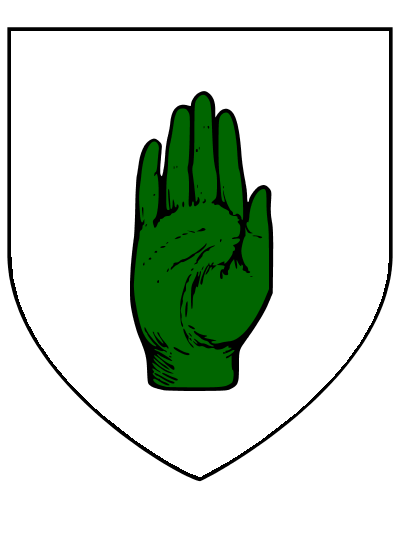
Name: House Gardener of Highgarden
Words: Spring Forth (official) You Reap What You Sow (common)
Sigil: Argent, a hand couped vert
Colours: White, Green
King of the Reach: Garth XII Gardener
Lord of Highgarden: Garth XII Gardener
Lord Paramount of the Mander: Garth XII Gardener
Defender of the Marches: Garth XII Gardener
Shield of the Faith: Garth XII Gardener
Prince of Summer: Marion Gardener
First Hand of the Realm: Marion Gardener
Grand Master of the Order of the Green Hand: Marion Gardener
High Steward of Highgarden: Mathios Tyrell
Common Language: Andalish (The Common Tongue)
Religion: The Faith of the Seven
Currency: Hands (Gold), Thorns (Silver), Grains (Copper)
Capital: Highgarden
Largest Cities, Towns, and Villages: Oldtown, Highgarden, Tumbleton, Ashford, Ryamsport, Longtable, Stonebridge, Goldengrove, Old Oak, Grassy Vale
Cadet Branches: House Florent, House Rowan, House Oakheart, House Redwyne, House Peake, House Ball, House Fossoway, House Tarly, House Oldflowers, House Uffering, House Hewett, House Bulwer, House Crane, House Beesbury, House Tyrell
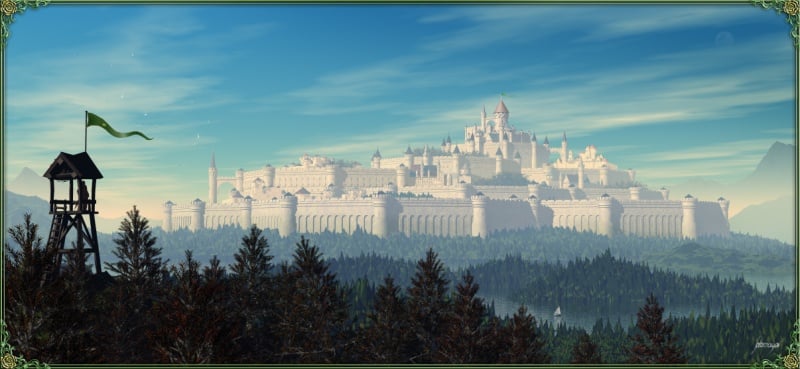
House Gardener Family Tree
- His Majesty, Garth XII Gardener, King of the Reach, Lord of Highgarden, Lord Paramount of the Mander, Defender of the Marches, and Shield of the Faith (b. 9575)
- His wife, Queen Laurane Gardener (nee Peake) (b. 9578)
- Their son, Prince Marion Gardener, Prince of Summer, First Hand of the Realm, and Grand Master of the Order of the Green Hand (b. 9598) A great knight, jouster, and man at arms. Twin of Kathlyn.
- His wife, Princess Alissa Gardener (nee Hightower) (b. 9598) Eldest daughter of Lord Hubert Hightower
- Their daughter, Princess Daeryssa Gardener (b. 9615)
- Their son, Prince Garse Gardener (b. 9617)
- Their second daughter, Princess Kaelyn Gardener (b. 9618) Twin of Kyra.
- Their third daughter, Princess Kyra Gardener (b. 9618) Twin of Kaelyn.
- His wife, Princess Alissa Gardener (nee Hightower) (b. 9598) Eldest daughter of Lord Hubert Hightower
- Their daughter, Kathlyn Osgrey (nee Gardener) (b. 9598) Twin of Marion.
- Her husband, Lord Addam Osgrey (b. 9594)
- Children covered in House Osgrey's family tree
- Her husband, Lord Addam Osgrey (b. 9594)
- Their second son, Prince Gyles Gardener (b. 9599)
- Their third son, Prince Meryn Gardener (b. 9601)
- Their second daughter, Princess Alayne Gardener (b. 9605)
- Their third daughter, Princess Alerie Gardener (b. 9607)
- Their son, Prince Marion Gardener, Prince of Summer, First Hand of the Realm, and Grand Master of the Order of the Green Hand (b. 9598) A great knight, jouster, and man at arms. Twin of Kathlyn.
- His wife, Queen Laurane Gardener (nee Peake) (b. 9578)
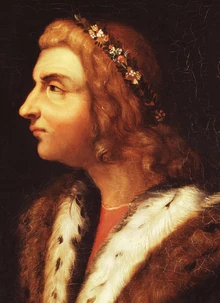
King Garth XII
- According to traditional history in the Reach, it has been well over 9,000 years since Garth Greenhand walked the earth. His legendary and mystical son Garth Gardener founded an ancient line of Gardener Kings which rule the Reach to this very day, some nine millennia later. Over the past 9,000 years, House Gardener has seen its family rise to prominence as one of the most important families in all of Westeros. With a history as long as House Stark's (and the Gardeners claim even longer), the Gardeners are among the oldest families in Westeros.
- As an ancient House existing since "time immemorial", House Gardener claims many titles for their Kings and Princes. The King of the Reach is formally addressed "His Majesty". The King holds the titles "King of the Reach, Lord of Highgarden, Lord Paramount of the Mander, Defender of the Marches, and Shield of the Faith". These titles represent House Gardener's rule over the Reach as monarchs, as well as their ownership of the great seat of Highgarden and their dominionship over the mighty Mander River. The final two titles represent their status as traditional defenders against Dornish, Westerlands, and Stormlander invasions of the southern Reach, as well as the family's strong support for the Faith of the Seven.
- Gardener Princes are given the title of "First Hand of the Realm" to signify their status as the heir to the Kingdom. In homage to House Gardener's deep connection to the land and the season of Summer, Gardener heirs are also given the honorific title of "Prince of Summer". The origins of the title date back to the days of King Garth VII, the Goldenhand". As the greatest King to date who ruled for well over 80 years, Garth's long reign meant the matter of his succession could potentially be disputed. Garth created the title "Prince of Summer" for the designated heir of House Gardener to hold in order to clearly define all matters of succession.
- The devastation which has befallen much of Essos in the immediate aftermath of the Doom of Valyria is starting to become clear. With the greatest empire in world history little more than smoke and ash, the various powers across central and western Essos begin to jockey for power in this new and unstable world. The Gardener Kings across the Narrow Sea look on with mild caution.
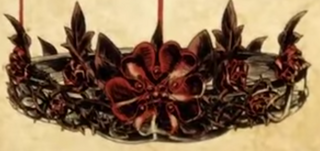
The Crown of Iron Roses and Thorns, worn by the Kings of the Reach when at war
- However, back in Westeros things are looking bright. The threat of invasion by the Dragonlords of Valyria seems to be gone, and with Essos in chaos the time has apparently come for a new age, one where Westeros captivates the world's attention while the cities of Essos squabble and fight over the crumbs of Valyria. With the second largest kingdom, the largest population, the largest army, and the largest city in all of Westeros, the Kingdom of the Reach may very well be on the cusp of a new golden age of prosperity. The current King, Garth XII, has spent the past 20 years ensuring that his son and successor will inherit a safe and powerful Kingdom. Garth has largely overseen the build up of the Reach's military forces over the past two decades, though he has declined to openly seek war with many of his neighbors unless forced to do so.
- Elsewhere, Garth's son Marion proves to be a promising heir in the making. Already an accomplished tourney knight and man-at-arms, Marion has recently been awarded the title of Grand Master of the Order of the Green Hand by his father, making him the most senior member of the military order. He currently wields House Gardener's ancestral blade, the Valyrian Steel sword Thorn

:origin()/pre12/8c62/th/pre/f/2013/262/0/5/storm___wip___step2_by_grosnez-d6mwmuk.jpg)
Oldtown on a stormy night, the largest city in Westeros and home to the Citadel, the Faith of the Seven, and House Hightower
- The Kingdom of the Reach is also the home to Westeros' cultural and religious pillars. Both the Citadel and the Starry Sept are located in the ancient city of Oldtown. The Reach contains a vast collection of knowledge and information collected from across the world, and it is said that the libraries in the citadel as well as in Highgarden are among the richest on Earth.
- The Faith of the Seven is widely regarded as one of the most powerful institutions in the Reach. With the Church's headquarters being located in Oldtown and with the largest Septs in all of Westeros found in the Reach, the Gardener Kings have taken on the title of "Defender of the Faith" several thousand years ago when they converted to the Faith from the Old Gods. The King of the Reach is one of the few Westerosi Kings to be personally crowned and anointed with the Seven Oils by the High Septon upon his coronation and ascension to the throne. House Gardener maintains an excellent relationship with the Faith, and is one of their steadfast supporters and defenders in nearly all matters.

- The Reach is the wealthiest kingdom in Westeros, with House Gardener widely considered to be among the richest families on the entire continent.
- Additionally, the Reach is by far the most fertile kingdom in Westeros. The products it produces are melons, fireplums, peaches, apples, and grapes, among many others. The Arbor, an island off the coast of the Reach and the seat of House Redwyne, is said to make the finest of wines in all of Westeros, from dry fruity reds to a rich golden vintage. Woodharps made in Oldtown are highly sought after as well. It is widely said that the Reach feeds well over half of Westeros, making it one of the richest and most prosperous Kingdoms on the entire continent.
- The Reach's large population allows it to have a vast labor pool.
- Golden coins from the Reach, called "Hands", are widely used across Westeros south of the God's Eye.
- The Reach possesses the largest merchant navy in all of Westeros, with over 3,000 ships of various types, among whom 1,000 ships are supplied by House Redwyne alone.

Bannermen of House Gardener
- There are currently at least 70 Noble Houses sworn to Highgarden.
- Due to her large population, the Reach can raise armies almost twice as large as those of any of the other regions. It is widely believed the Reach can muster around 70,000 men when at war, by far the largest number of men in all of Westeros, with only the Kingdom of the Stormlands matching her thanks to the incorporation of the Riverlands.
- While the Reach can raise armies twice as large as any other region, it also has twice as many (potentially) hostile borders compared to other regions, with long standing rivalries (and pacts of friendships) with nearly all her neighbors.
- The Reach is a very fertile and productive land, and her knights are so wealthy that they can afford full plate armor (in contrast with the hardscrabble lands of the North, whose soldiers often have to settle for cheaper chainmail).
- The Navy of the Reach is one of the largest and most experienced in all of Westeros. The Redwyne Fleet based out of the Arbor is highly regarded as one of the greatest fleet in Westeros, though the fleets of the Iron Islands certainly commands just as much respect and admiration. House Gardener, being located farther inland in the Reach uses her ships merely to guard the Shield Islands and protect the mouth of the Mander River. Thus, she delegates most of the naval responsibilities of the Reach to House Redwyne.
- The Hightower Fleet based out of Oldtown is the second largest in the Reach and is usually tasked with defending the coastline of the Reach as well as patrolling the Redwyne Straights.
- Together, the combined power of the various Houses of the Reach and their navies gives House Gardener one of the largest fleet in all of Westeros (though this only serves as bragging rights as the combined fleets of the Iron Islands is larger).
- The naval forces of the Reach focuses on four main points:
- Defense of the coastline of the Reach, the Mouth of the Mander River and the entrance to Oldtown.
- Patrolling the Redwyne Straights and the seas off the south-west coast of the Reach for smuggler and pirates.
- Escorting the Reach's large merchant navy whenever such services are deemed necessary.
- Services to the Crown whenever the naval services of the Reach are called upon for the defense of the kingdom.
- As Marshals of the Northmarch, House Osgrey is charged with defending the northern border of the Reach, specifically the lengthy border with the Kingdom of the Rock.
- As Marshals of the Dornish Marches, House Peake is charged with defending the southern border of the Reach, specifically the lengthy border with Dorne (and technically the Stormlands as well). The Red Mountains have always been used as a means for both the Reach and Dorne to raid one another. House Peake leads the Marcher houses in defending what has traditionally been one of the Reach's most crucial land borders.
- Founded thousands of years ago before the arrival of even the Andals according to their Great Charter, the Order of the Green Hand is the most senior military order in the Kingdom of the Reach. With membership at roughly 20,000 men, and roughly a tenth of them being Knights. Only those both virtuous and skilled in arms are offered membership into the order as a full-fledged Knight, making it a great honor to become a member. Those who are not Knights or members of the Order's leadership are given the title "Acolytes". The Order of the Green Hand is lead by the Grand Master, a title traditionally (but not always) held by the most senior and skilled Knight of House Gardener, with all senior titles in the Order's hierarchy being elected by the organization's members. The Order is essentially House Gardener's elite personal army outside of the realm of traditional levees and bannermen, and they form the core of the Reach's most skilled soldiers in battle. Members of the Order are charged with the protection of the Royal Family, defending the Reach against foreign invasion, keeping the King's Peace, and upholding traditional chivalric traditions of defending the weak and innocent. When not engaged in combat, Knights of the Order often perform charitable duties helping the smalfolk across the realm alongside the Faith of the Seven. While the Order claims its existence pre-dates that of the Andals' arrival into the Reach, prior to the introduction of Knighthood by the Andals the Order lacked the title of "Knight". Due to its ancient history, the Order of the Green Hand is one of the few organizations or institutions in the Reach to maintain semblances of its First Men roots. Despite the fact that the Order now is heavily centered on the teachings of the Faith as well as the Andal concepts of Knighthood and chivalry, it greatly relies on imagery and customs harkening back to the Age of Heroes, offering a unique blend of the Reach's past and present.

A Knight of the Order of the Green Hand, bearing the traditional uniform, helm, and shield of the Order
- The Reach can assemble about 30,000 men relatively quickly. The remaining 40,000 troops would take some time to properly field.
- House Gardener of Highgarden: 15,000 men (Roughly 2,000 of which are Knights of the Order of the Green Hand)
- House Hightower of Oldtown: 10,000 men
- House Beesbury: 1,000 men
- House Bulwer: 1,000 men
- House Costayne: 800 men
- House Cuy: 1,000 men
- House Mullendore: 700 men
- House Osgrey of Coldmoat: 5,000 men
- House Rowan of Goldengrove: 1,000 men
- House Osgrey of Leafy Lake: 700 men
- House Osgrey of Standfast: 300 men
- House Caswell of Stonebridge: 3,000 men
- House Meadows of Grassy Vale: 1,500 men
- House Florent of Brightwater Keep: 2,000 men
- House Merryweather of Longtable: 3,000 men
- House Ball: 1,000 men
- House Footly of Tumbleton: 2,000 men
- House Fossoway of Cider Hall: 1,000 men
- House Oakheart of Old Oak: 2,000 men
- House Peake of Starpike: 5,000 men
- House Redwyne of the Arbor: 1,000 men
- House Tarly of Horn Hill: 2,000 men
- The remaining 10,000 men come from the various other Houses of the Reach
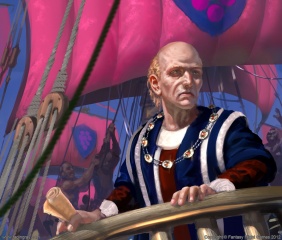
The purple sails of the Redwyne Fleet
- 150 ships of House Redwyne
- 100 ships of House Hightower
- 50 ships along the Shield Islands
-Marriage Pact with House Hightower
-Marriage Pact with House Osgrey
-Marriage Pact with House Peake
KnightofTempest
The Man who would be King
- Location
- Chicago
KnightofTempest
The Man who would be King
- Location
- Chicago
(Whispers about Ghaen getting ideas above its station)
Yes, we will join.
Excellent, may you grow strong.
New Ghis-1 AD
KnightofTempest
The Man who would be King
- Location
- Chicago
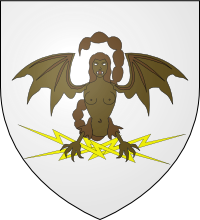
New Ghis 1AD
Ruler: Princeps Zagan mo Zagan
Heir: Imperator Khagan mo Zagan
Model of Government: Roman-Style Principate
Internal Events:
The II and I Legion are trained by Veterans of the Auxiliary Legions that returned home after service to the Former Valyrian Overlords prior to the doom. The Veterans are on the older side for Soldiers having all completed the Mandatory 10 year enlistment in the Valyrian Army for Ghiscari Auxiliaries and in some cases having a further 10 years of peace at home, but they are capable of training up the new recruits in a 9 week boot camp to see the Iron Legions reforged anew into the manipular format innovated by the Princeps when taking over Ghaen. Meanwile A third Legion is being Raised from Ghaen. This III Legion is still in training and it is expected that it will exhaust the possibility of any further troops being Raised from Ghaen. (Major Action 1 @Ceslas)
At the same time as the Army drilling, the small navy that New Ghis has been allowed to retain for pirate defense is drilling in fleet actions, coordination, and scouting. This should allow an increase in crew quality. Meanwhile 10 Dromonds are being laid down in the Dockyards to round out the fleet. These are not expected to be completed for some time. (OOC: Major Action 2 @Ceslas)
By the end of the 9 weeks the Fleet and the I Legion Muster on the Field of the Harpy and supplies are gathered. It seems a campaign is in the offing (OOC: Major Action 3 @Ceslas use the plans I sent)
With the Signing of the Ghiscari League between Mereen, Hazdan Mo, and New Ghis, new Ghis sees an increase in trade. In addition New Ghis now has commitments to come to her allies' aid should it be required.
The Imperator is somewhat enamored with Qartheen Elephants and their potential combat uses. He is currently attempting to persuade his father the Princeps of such, but the man is steadfast in his determination that discipline and training are what make the best armies, not gimmicks like elephants. Only time will tell if the Imperator can sway his father's mind.
Economy: Boom
With the restriction placed on New Ghis by their former Valyrian Overlords lifted, New Ghis is free from the export quotas placed upon them. Combined with the new alliance being formed, this has allowed New Ghis an economic boom.
Iron, Lead, Zinc, and Tin from the Ghaen interior are shipped out along with Slaves, Fish, Pearls, and other goods are all produced locally, but much of the wealth is being funneled into the state. So long as growth continues this should not be an issue, however if growth were to halt without proper reinvestment it could cause a crash.
Military:
The Iron Legions of New Ghis are a descendant of the Lockstep Legions of Old Ghis. Previously every Legion Raised by New Ghis would be sent to Valyria to serve as Auxiliary troops, with New Ghis only being allowed to retain a maximum of two Legions by Treaty for her own defense. Even the bastards of Valyria knew the value of Ghiscari Legions. However with her former overlords gone, New Ghis may once again raise new Legions for her own purposes and train them to the standard of the Old.
Each Legion is comprised of 10 Centuries of 600 men, in turn comprised of 6 cohorts of 100 men. The Legions are formed up in cohorts in checkerboard formation, allowing greater mobility and ability to shift into other formations such as Wedge or Block. Each Legion has approximately 4,800 Heavy Infantry Legionaries and 1,200 Light Troops.
Legionaries are armed in mail with helms, bracers, and greaves large Scutum Shields, a hasta spear, short stabbing sword, and Javelin, which they throw before making contact.
Light troops are armed in boiled leather over padded jacks with helms, small round shields, javelins and short stabbing swords. They skirmish and scout and in battle prevent the flanks from being overrun.
-12,000 Men in 2 Iron Legions of 6,000 Each.
-6,000 Legionaries in Training
Navally New Ghis is somewhat worse off as Valyria saw no use for ships when dragons could fight naval battles better. New Ghis was limited to a Humiliating 40 ships for defense against Pirates and were not allowed to field Dromonds, only the smaller War Galleys. With the Valyrians Gone however a slight shipbuilding project has begun to rectify this with 10 Dromonds being laid down in the naval yards.
-40 War Galleys
-10 Dromonds Under Construction
Alliances, Pacts, and Trade
-Member of the Ghiscari League
-Trade with most of Slavers Bay and Qarth
Last edited:
